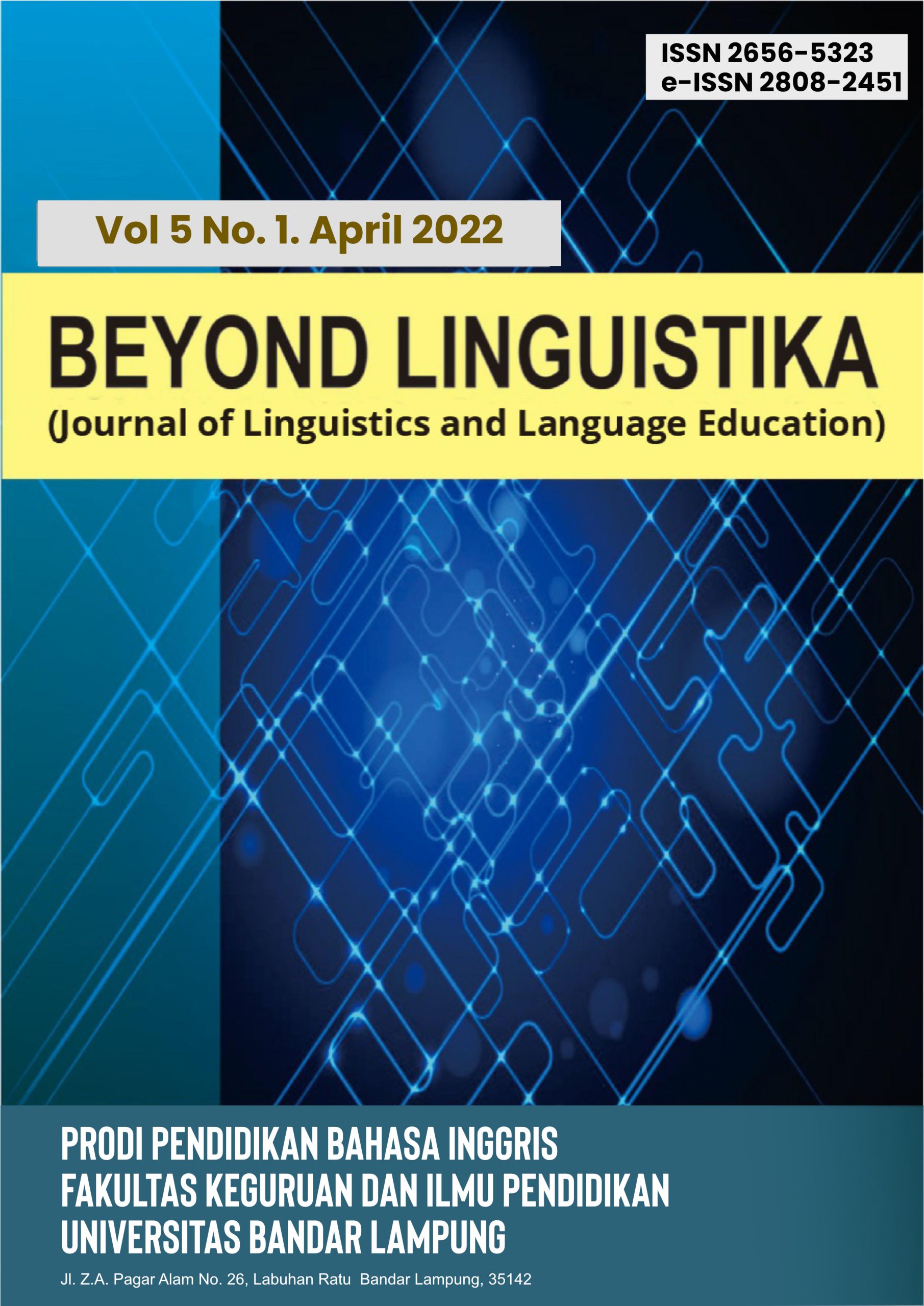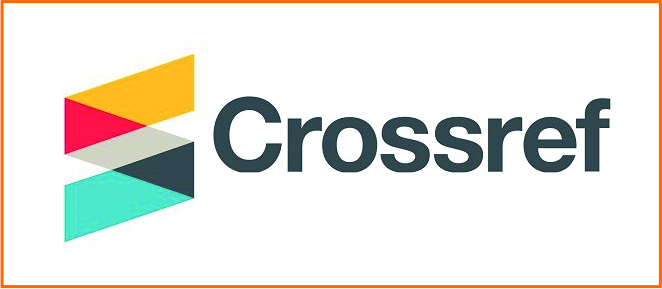DIGITAL POSTER PROJECT AS AN ASSESSMENT IN EXTENSIVE READING CLASS
Abstract
Keywords
Full Text:
PDFReferences
Afflerbach, P. (2016). Reading
Assessment: Looking Ahead.
Reading Teacher, 69(4), 413–
https://doi.org/10.1002/trtr.143
Ardianti, T. M., & Mauludin, L.
A. (2017). Students' Responses
on the Application of Authentic
Assessment in EFL Reading
Class. METATHESIS, 1(2), 9–
Vol. 4 No. 1 April 2021 ISSN 2656-5323
Ashford-rowe, K., Herrington,
J., & Brown, C. (2014).
Assessment & Evaluation in
Higher Education Establishing
the critical elements that
determine authentic
assessment. Assessment &
Evaluation in Higher
Education, 39(2), 37–41.
https://doi.org/10.1080/026029
2013.819566
Daud, A., Chowdhury, R.,
Mahdum, M., & Mustafa, M. N.
(2020). Mini-seminar project:
An authentic assessment
practice in speaking class for
advanced students. Journal of
Education and Learning
(EduLearn), 14(4), 509.
https://doi.org/10.11591/edulea
rn.v14i4.16429
Guo, S. Cing. (2012). Using
authentic materials for
extensive reading to promote
English proficiency. English
Language Teaching, 5(8), 196–
https://doi.org/10.5539/elt.v5n8
p196
Iwahori, Y. (2008). Developing
Reading Fluency: A Study of
Extensive Reading in EFL.
Reading in a Foreign
Language, 20(1), 70–91.
http://search.ebscohost.com/log
in.aspx?direct=true&db=eric&
AN=EJ791535&site=ehostlive%5Cnhttp://nflrc.hawaii.ed
u/rfl/April2008/abstracts.html#
iwahori
Kasih, A. P. (2020). Nilai PISA
Siswa Indonesia Rendah,
Nadiem Siapkan 5 Strategi Ini.
Kompas.Com.
edukasi.kompas.com/read/2020
/04/05/154418571/nilai-pisasiswa-indonesia-rendahnadiem-siapkan-5-strategiini?page=all.
Majuelos, A. B., & Maestro, I.
(2017). The power of extensive
Reading in English as a Foreign
Language acquisition:
implications and suggestions.
–257.
Nakanishi, T. (2015). A MetaAnalysis of Extensive Reading
Research. TESOL Quarterly,
(1), 6–37.
https://doi.org/10.1002/tesq.15
Ni'mah, D., & Umamah, A.
(2020). Mobile-Assisted on
Extensive Reading: Students'
Voices. English Education:
Journal of English Teaching
and Research, 5(1), 41–48.
https://doi.org/10.29407/jetar.v
i1.14367
Pigada, M., & Schmitt, N.
(2006). Vocabulary acquisition
from extensive reading: A case
study. Reading in a Foreign
Language, 18(1), 1–28.
Rochmawati et al. (2020).
Analysis of 21st Century Skills
of Student on Implementation
Project Based Learning and
Problem Posing Models in
Science Learning. Journal of
Primary Education, 9(1), 58–
https://doi.org/10.15294/jpe.v9i
28753
Suk, N. (2017). The Effects of
Extensive Reading on Reading
Comprehension, Reading Rate,
and Vocabulary Acquisition.
Reading Research Quarterly,
(1), 73–89.
https://doi.org/10.1002/rrq.152
van Laar, E., van Deursen, A.J.
A. M., van Dijk, J. A. G. M., &
de Haan, J. (2020).
Determinants of 21st-CenturyVol. 4 No. 1 April 2021 ISSN 2656-5323
Skills and 21st-Century Digital Skills for
Workers: A Systematic Literature Review.
SAGE Open, 10(1).
https://doi.org/10.1177/215824
Villarroel, V., Bloxham, S.,
Bruna, D., Bruna, C., & Herreraseda, C. (2017). Assessment &
Evaluation in Higher Education
Authentic assessment:
creating a blueprint for
course design. Assessment &
Evaluation in Higher
Education, 2938 (December),
–14.
https://doi.org/10.1080/026029
2017.1412396
Virgiyanti, D. F. (2020).
THE USE OF
EXTENSIVE READING
TO ENCOURAGE
STUDENTS'
READING ABILITY.
(01).
Zahid, M., & Khanam,
A. (2019). Effect of
Reflective Teaching
Practices on the
Performance of
Prospective Teachers.
Turkish Online Journal
of Educational
Technology - TOJET,
(1), 32–43
DOI: http://dx.doi.org/10.36448/bl.v4i1.1976
Refbacks
- There are currently no refbacks.















